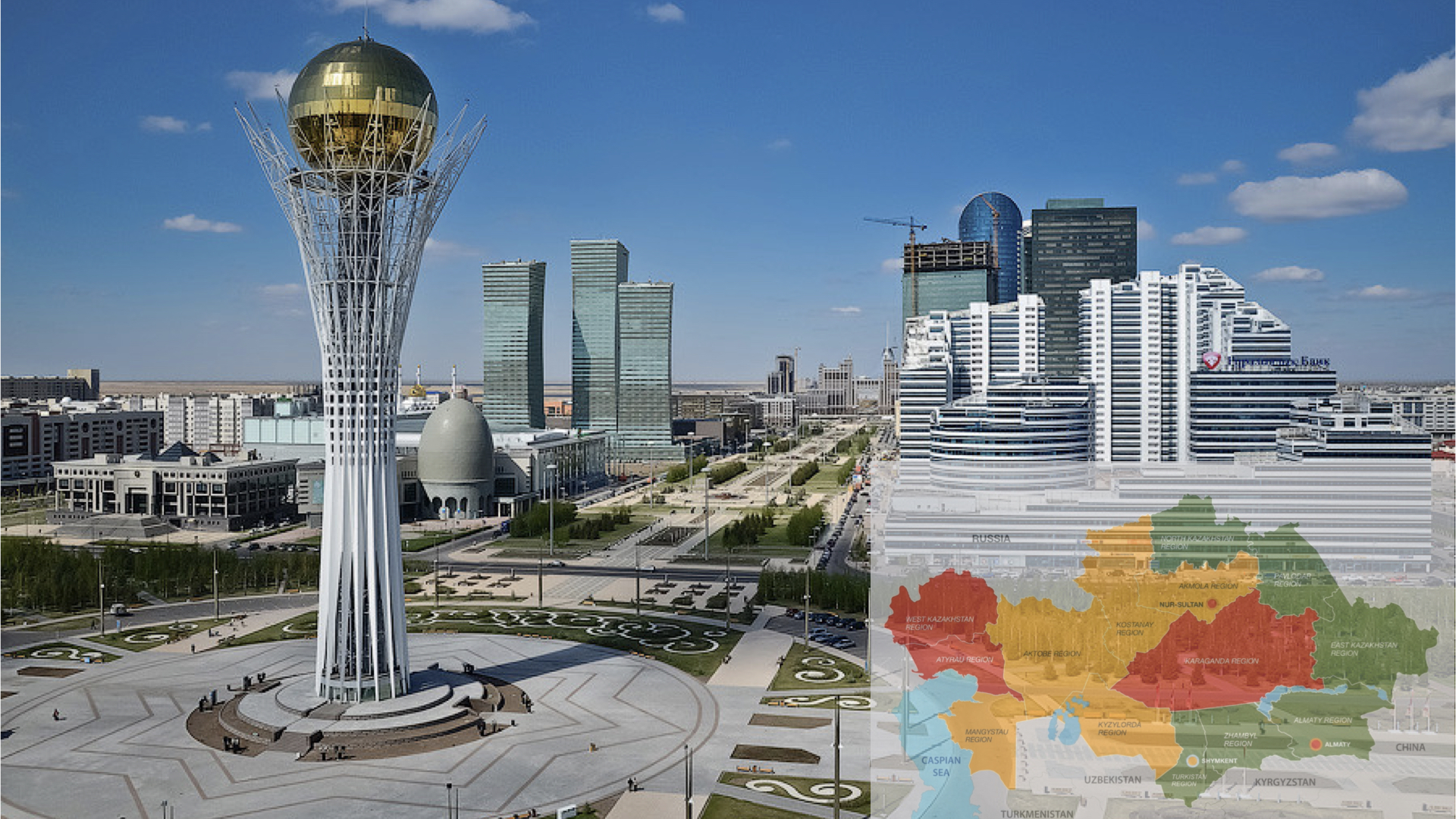NUR-SULTAN – Kazakhstan returned to a high-risk red zone, as the epidemiological situation worsened after a more contagious Delta variant reached the nation’s capital.

Kazakhstan remains cautious given the worsening epidemiological situation in neighboring countries. Click to see the map in full size.
During last week’s government meeting, Kazakh Healthcare Minister Alexey Tsoi said the number of infections grew 40 percent over the past seven days.
“According to the results of the PCR screening of positive laboratory samples obtained from the coronavirus patients in Nur-Sultan, the Delta variant was detected. The Delta variant is highly contagious and 60 percent more contagious than the other detected strains, and is characterized by a shorter incubation period of up to seven days,” Tsoy said.
As of June 28, the cities of Almaty and Nur-Sultan as well as the West Kazakhstan, Atyrau, and Karaganda regions are in the red zone. Shymkent, Kyzylorda, Mangistau, Kostanai, Akmola, and Aktobe regions are in the moderate risk yellow zone.
Nur-Sultan has been in the red zone for more than two months now. The city officials tightened coronavirus restrictions from June 27, restricting the work of shopping and entertainment centers on weekdays from 10 am to 5 pm, with a ban on Saturdays and Sundays. Pharmacies and supermarkets located in malls will continue working.
Cafes and restaurants located indoors will work from 7 am to 8 pm on weekdays only. Outdoor dining places will be working from 7 am to 10 pm both weekdays and weekends.
“The number of cases is growing. In the past 24 hours alone, 413 cases were detected. More than 1,000 people are now in infectious diseases hospitals. More than half of hospital beds are already occupied. There are 100 patients in the intensive care unit and 21 people are on a ventilator. The workload of our medical personnel continues to grow,” said Nur-Sultan Mayor Altai Kulginov.
Kazakh Prime Minister Askar Mamin urged the government to keep the situation under control.
“Despite the fact that the overall situation in Kazakhstan is stable, the situation in neighboring countries continues to deteriorate. It is necessary to strengthen control at the state border, as well as to pay special attention to strict compliance with sanitary and epidemiological norms and increase the rate of vaccination,” Mamin told the government meeting last week.
WHO Director-General Tedros Adhanom Ghebreyesus said the Delta variant, first identified in India, is most transmissible out of all variants. The variant has been identified in at least 85 countries.
“As some countries ease public health and social measures, we are starting to see increases in transmission around the world. More cases mean more hospitalizations, further stretching health workers and health systems, which increases the risk of death. As we have said, new variants are expected and will continue to be reported – that’s what viruses do, they evolve – but we can prevent the emergence of variants by preventing transmission,” he said at a media briefing on Friday.
He said preventing transmission could be possible through “tailored and consistent use of public health and social measures, in combination with equitable vaccination.”

